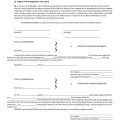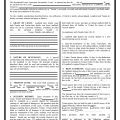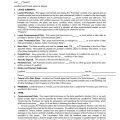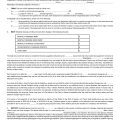An Alaska Roommate Agreement is a document that enables a group of tenants renting the same residence to define guidelines and routines that are not outlined in the lease. The contract can be as specific or general as the roommates like. Most agreements will specify who is responsible for cleaning, paying for utilities, and hosting visitors. Having a roommate agreement in place can ensure that there are no damages to the property, that the rent and utilities are always paid, and that disagreements are minimal. The document specifies how the parties can seek resolution in the event of a dispute, which may entail asking a reliable third party to assist the housemates in resolving any concerns.
Steps to Fill the Alaska Roommate Agreement
The following are the clauses that need to be specified clearly in the Agreement-
- Title- You can give any title to the agreement. It is best of the agreement has a title that is commonly understood in the market e.g. in this case the title of the Agreement is Alaska Roommate Agreement since it describes the relationship between the parties.
- Preamble / Recital- The Preamble is worded as short sentences separated with semicolons. These precede the first clause of the contract, and provide a background to the contract, explaining the purpose behind entering into the contract. Recitals will usually begin with ‘Whereas’ and will give a background to what existed before the contract and how the parties came together to enter into the contract.
- Definitions- Define any terms which have a technical meaning or to which you intend to give a technical meaning. Make sure you capitalize the terms whenever you use them in the contract. The parties can define the term ‘Property’.
- Effective Date- Mention the date when the parties’ obligations are triggered/ active. It can be a specific date or situation when certain prerequisite conditions are met (called as Conditions Precedent clause). When these conditions are met, a ‘Completion action from both the parties will activate the agreement.
- Obligations of the Parties + Consideration- The key obligations of the parties and the consideration for the same must be specified clearly so as to avoid future conflicts.
- Term- mention the duration of the agreement- i.e. how many months, years etc. It is closely tied to the termination and renewal clauses.
- Termination- mention circumstances under which the agreement can be terminated. Make sure you mention termination for convenience (i.e. no reason and at the free will of either party, and termination for breach). Defining breach is critical and gaps can often lead to disputes in future.
- Covenants/ duties of each party- every action that each party commits to undertake or abstain from must be mentioned here. Breach will lead to a default situation, leading to a release of the non-defaulting party from its obligations and the right to claim compensation/ seek specific enforcement.
- Representations and warranties- every transaction is based on a set of underlying statements of facts or assertions about the quality of something. This clause lists down all such ‘representations’ and ‘warranties’ by the parties. Breach of these triggers the right to seek compensation. It can also lead to a release of the other party from its obligations.
- Indemnification- sometimes, breach of responsibility by one party can lead to losses for the other. Will these losses be made good and to what extent? This question needs to be specified clearly in the document by the roommates.
- Method of payment- this clause lays down the mechanics of payment such as the date of payment, mechanism (bank transfer, cheque etc.), invoicing etc.
- Governing law- the law applicable to the contract. Selection of a governing law is very important in international contracts.
- Dispute Resolution- How will disputes be resolved? Usually parties specify alternate dispute resolution methods, such as consultation, mediation and arbitration or a combination of them. It is very important to keep your dispute resolution clause tightly worded so that the contract is speedily enforceable.
- Waiver- does non- insistence on performance of particular contractual provisions imply that the party has waived off its rights? Usually, parties will include a specific clause stating that waiver cannot be inferred simply from a failure to insist on performance, and a waiver needs to be expressly provided in writing.
- Breach, consequence of breach and remedies- what amounts to breach and what are the consequences of breach? Many agreements have an “events of Default” clause explaining what is considered to be a breach. Consequences of breach also need to be defined. What kind of remedies can be sought in case of breach? Are damages the only remedy or can a defaulting party be compelled to perform the contract or be prevented from taking a specific action? The specific relief statutes state that specific performance of a contract can be insisted upon if monetary compensation is inadequate. Parties tend to include a specific term stating that they agree that in case of a breach, monetary damages may not be adequate.
- Signature sections (for execution of a contract by the parties)- typically first and last pages contain full signatures, and all the others are initiated by the parties. Certain contracts may require attestation of witness, who will also need to place his signature in the same way as the parties.
The Alaska Roommate Agreement is governed by the Alaska Uniform Residential Landlord and Tenant Act.
Alaska Uniform Residential Landlord and Tenant Act
Frequently Asked Questions
- When is discrimination by landlord illegal?
- What are some of the landlord’s responsibilities?
- Can the landlord raise the rent?
When is discrimination by landlord illegal?
It is illegal under both State and Federal law for landlords to refuse rent to someone because of sex, race, religion, national origin, colour, physical or mental disability or pregnancy. Under State law it is also illegal to refuse to rent to someone because of marital status or change in marital status. A landlord may not even make an inquiry regarding the tenant’s status in any of these areas.
What are some of the landlord’s responsibilities?
The law requires that the landlord must:
- Give the tenant a copy of any written rental agreement;
- abide by the lawful terms of the agreement; keep the tenant informed of any change in the landlord’s or his agent’s address;
- make sure the premises are ready for the tenant when the rental agreement takes effect;
- ensure that the tenant’s enjoyment of the premises is not disturbed;
- maintain a fit premises
- give adequate notice of a rent increase;
- give the required notice before demanding that a tenant move out; and
- return the tenant’s security deposit and/or prepaid rent when the tenant moves out and/or give a complete written accounting of money held for accrued rent, damages, and the repair cost within the time limit required by law.
Can the landlord raise the rent?
The landlord is legally allowed to increase the rent by any amount if there isn’t a lease. On a month-to-month tenancy, however, the landlord must provide the tenant at least 30 days’ notice before the increase takes effect.
Then, tenants have two options: either they agree to pay the rent or they leave.
Legally, receiving a notice of a rent increase is probably the same as being given the option to end the rental agreement at the previous rate and move into the same apartment at the new, higher rate.
Therefore, a landlord must provide tenants advance notice of any rate increases at least 30 days before they take effect. Those tenants who want to leave rather than accept the rate increase must also give the landlord a written 30-day notice of their intention to do so.
A tenant may have rights in addition to those stipulated by state law if they get a housing subsidy or reside in a federal or state housing project. In housing where HUD has given the owner loan or rent guarantees, for instance, the U.S. Department of Housing and Urban Development (HUD) or the Alaska Housing Finance Corporation (AHFC) may have influence over rent increases.




